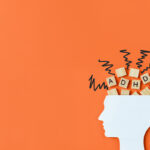As a follow-up to our previous post on Cognitive Behavioral Therapy, we’re taking a closer look at another form of psychotherapy called Dialectical Behavioral Therapy (DBT).
DBT is designed to help people cope with strong negative emotions associated with mental health conditions like depression, self-harm, eating disorders, and substance abuse. It’s based on the findings of Marsha Linehan, a psychologist who helped people suffering from suicidal thoughts and borderline personality disorder.
Just like there’s a lot of crossover among mental illness symptoms, there are commonalities between treatments, including DBT and CBT. For example, both utilize talk therapy to help people manage behaviors, thoughts, and emotions. DBT treatment and clinicians focus on developing specific skills to help get you there.
Let’s dive in.
Mindfulness
We hear this term a lot, and if it causes you to roll your eyes, you’re not alone. However, its prevalence is backed up by its effectiveness.
Mindfulness means being aware of your emotions and identifying them without judgment. Doing so can empower you to process and manage your emotions in a healthier way.
DBT comes into play by dividing mindfulness into ‘how’ skills and ‘what’ skills.
‘What’ skills allow you to identify various emotions, sensations, and thoughts, so that you can begin the coping process.
With ‘How’ skills, individuals learn how to process emotions through rational thought, so that they utilize mindfulness for taking effective steps towards overcoming problems. People can become adept at managing problems that make mindfulness harder, like doubt and stress.
Distress Tolerance
Distress tolerance teaches relaxation and calming skills in times of crisis, so that people don’t resort to harmful coping methods. You also learn to distract yourself until you feel focused enough to handle the crisis. Distress tolerance techniques provide you with the tools to receive intense emotions and empower you to cope with them by establishing a positive long-term view.
Interpersonal Effectiveness
Mood swings and negative emotions are incredibly disruptive when it comes to relationships with others. Interpersonal effectiveness teaches you to manage conflicts and challenges that may transpire in your relationships through developing social skills, self-esteem, and rational thinking. Ultimately, you can mature into a better listener and communicator, the cornerstones of any healthy relationship.
Emotion Regulation
Negative emotions are impossible to avoid; we’re human after all. But mental health conditions magnify the intensity of these emotions, causing damage to the quality of your life. DBT leverages emotion regulation, which reduces their intensity by helping you identify and put a name to them. This practice reduces emotional vulnerability and encourages more positive emotional experiences.
“Knowledge is power” might be a cliché, but knowing how to implement the foundational skills of DBT can equip you with the skills to move the needle in your emotional development.
DBT With Chicago Mind Solutions
Chicago Mind Solutions specializes in Dialectical Behavioral Therapy and other evidence-based therapeutic interventions to treat a multitude of mental health conditions. For more information about our treatments and teletherapy options, please contact us at (224) 723-5050 or email info@chicagomindsolutions.com.






